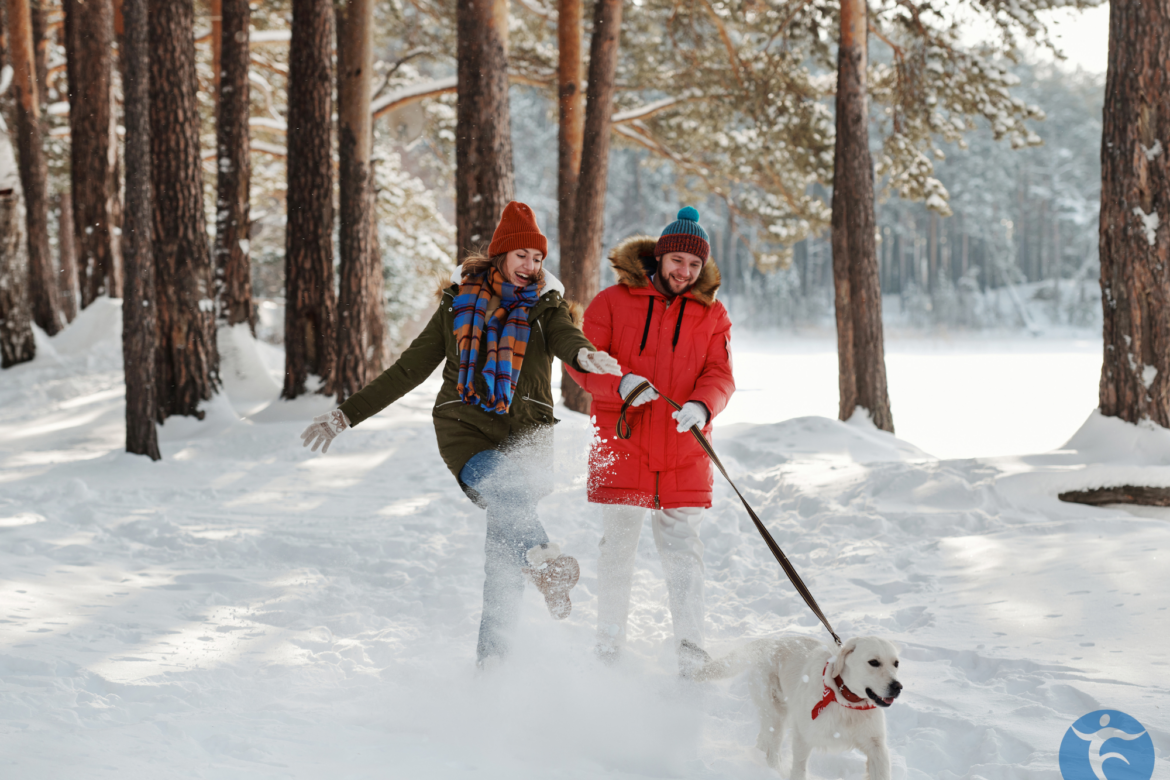Common Winter Injuries and How to Prevent Them
Winter in Wisconsin means cold temperatures, snow-covered streets, and icy sidewalks. While these elements make the season beautiful, they also increase the risk of injury. Whether slipping on ice, shoveling snow, or participating in winter sports, taking precautions is crucial to staying healthy throughout the season. In this blog post, we’ll cover the most common winter injuries, tips on how to prevent them, and what to do if they happen. Stay safe and enjoy the winter months!
Common Winter Injuries
Slips and Falls
One of the most common winter injuries occurs when you slip on ice or snow-covered surfaces. This can lead to broken bones, sprains, or concussions, especially if you fall awkwardly.
Prevention Tips
– Walk cautiously and take smaller steps when navigating icy surfaces.
– Keep your hands free to help balance and avoid distractions like looking at your phone.
– Use ice grips or traction devices for added stability.
– Keep walkways clear of ice by salting or using sand.
– Bring a headlamp to light the way if walking in the dark.
Back and Neck Injuries While Shoveling
Shoveling snow is a task many Wisconsinites know all too well. However, the repetitive motions and heavy lifting can lead to back and neck strains, especially if done improperly.
Prevention Tips
– Use a shovel with a long handle to avoid bending over too much.
– Bend your knees and keep your back straight when lifting snow.
– Don’t overload the shovel—take smaller scoops to prevent strain.
– Consider using a snow blower if you have a large area to clear.
Heart Attacks
Shoveling snow, especially after a heavy snowfall, can put significant stress on your heart, potentially leading to heart attacks. The cold air and physical exertion make this risk higher for people with underlying heart conditions.
Prevention Tips
– If you have heart problems, check with your doctor to make sure this level of activity is safe for you.
– Take frequent breaks while shoveling, especially if you shovel a lot of snow.
– Make sure to nourish and hydrate before, during, and after strenuous activity.
– Stay warm by dressing in layers and avoid overexerting yourself.
– If you feel chest pain or dizziness, stop immediately and seek medical attention.
Hypothermia
Hypothermia occurs when your body temperature drops below the normal level due to prolonged exposure to cold weather. Symptoms include shivering, confusion, slurred speech, and fatigue.
Prevention Tips
– Dress in layers to trap body heat, with moisture-wicking fabrics as your base layer and water-resistant layers on the outside.
– Limit time spent outdoors in extreme cold.
– Keep your head, hands, and feet covered, as they lose heat quickly.
Frostbite
Frostbite is when skin and underlying tissues freeze, often affecting the fingers, toes, ears, and nose. It can cause permanent damage if not treated promptly.
Prevention Tips
– Avoid prolonged exposure to cold, especially in windy conditions.
– Wear insulated gloves, socks, and scarves to protect extremities.
– Stay active to improve circulation and keep your blood flowing.
– If you notice numbness or tingling in your fingers or toes, seek shelter immediately and warm up gradually.
Strains and Strains
Winter sports like skiing, snowboarding, or ice skating can lead to sprains and strains, especially if you don’t warm up properly beforehand. Cold bodies are more prone to injury.
Prevention Tips
– Always warm up with active movements before engaging in any winter sport.
– Start slow, and gradually increase the intensity of your activity.
– Wear proper gear to prevent falls and protect against impact.
– Go out with a plan for how intense and how long you will be participating.
Top Tips for Winter Injury Prevention
Slow Down
In winter, hurrying can lead to accidents. Whether you’re walking on slippery sidewalks, shoveling snow, or driving, please take your time.
Choose Shoes Wisely
Wearing shoes with good traction is essential for avoiding slips on icy surfaces. Wear waterproof, insulated boots with non-slip soles for better grip and warmth.
Dress Properly
Layering your clothing is key in winter. Wear moisture-wicking base layers, warm mid-layers, and weatherproof outer layers. Don’t forget gloves, scarves, and hats to protect your extremities.
Shovel Safely
As mentioned, lifting snow improperly can strain your back and neck. Use the correct posture and break up the task into smaller, manageable sections.
Exercise Year-Round
Maintaining physical fitness throughout the year can help you avoid injury in winter. Strengthening your muscles, especially your core and legs, makes you more resilient when navigating icy terrain or participating in winter sports.
Know Your Limits
Don’t push yourself too hard. Whether you’re lifting heavy snow or engaging in outdoor activities, know when to take a break and listen to your body.
Let Someone Know When You’re Going Out
It’s always a good idea to inform someone when you plan to go outdoors in extreme cold or for outdoor activities. This ensures that help is available if you encounter any issues, like getting lost or injured.
Get Care When You Need It
If you do experience an injury, don’t delay seeking treatment. Prompt medical attention can prevent further damage and speed up recovery.
Freedom PT: Your Partner in Winter Injury Prevention/Rehabilitation
At Freedom PT, we specialize in helping you stay active and pain-free throughout the winter months. If you suffer from a winter injury, or if you’re simply looking for advice on how to stay safe during the colder months, our team of physical therapists can help. We offer personalized care tailored to your needs, whether you’re recovering from an injury or want to improve your overall fitness.
Book an Evaluation
Don’t let winter injuries slow you down. Book an evaluation with Freedom PT today to ensure you’re staying healthy and active all season long. By following these tips, you can minimize your risk of injury and enjoy everything winter in Wisconsin has to offer safely. Stay warm, stay active, and stay safe!

